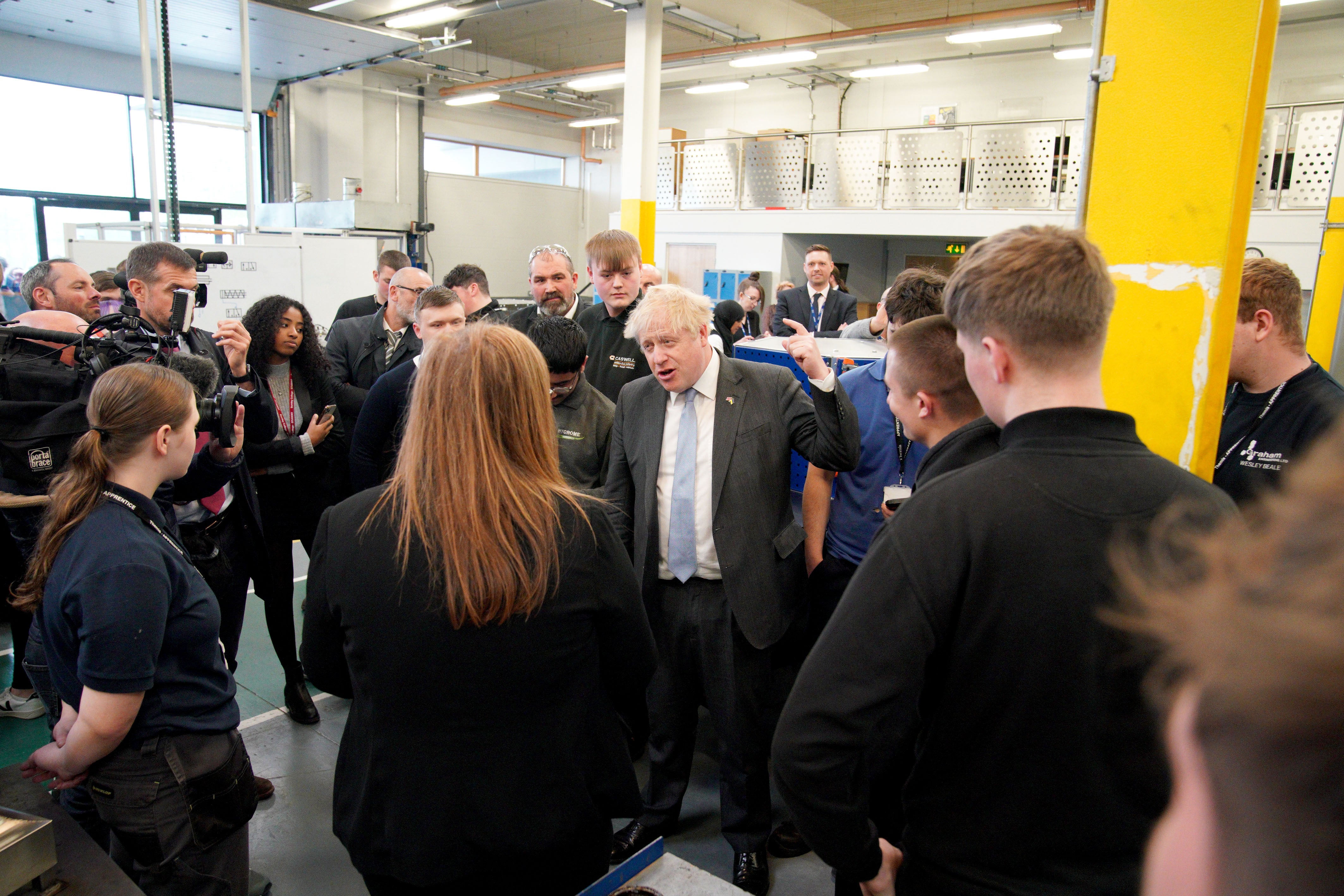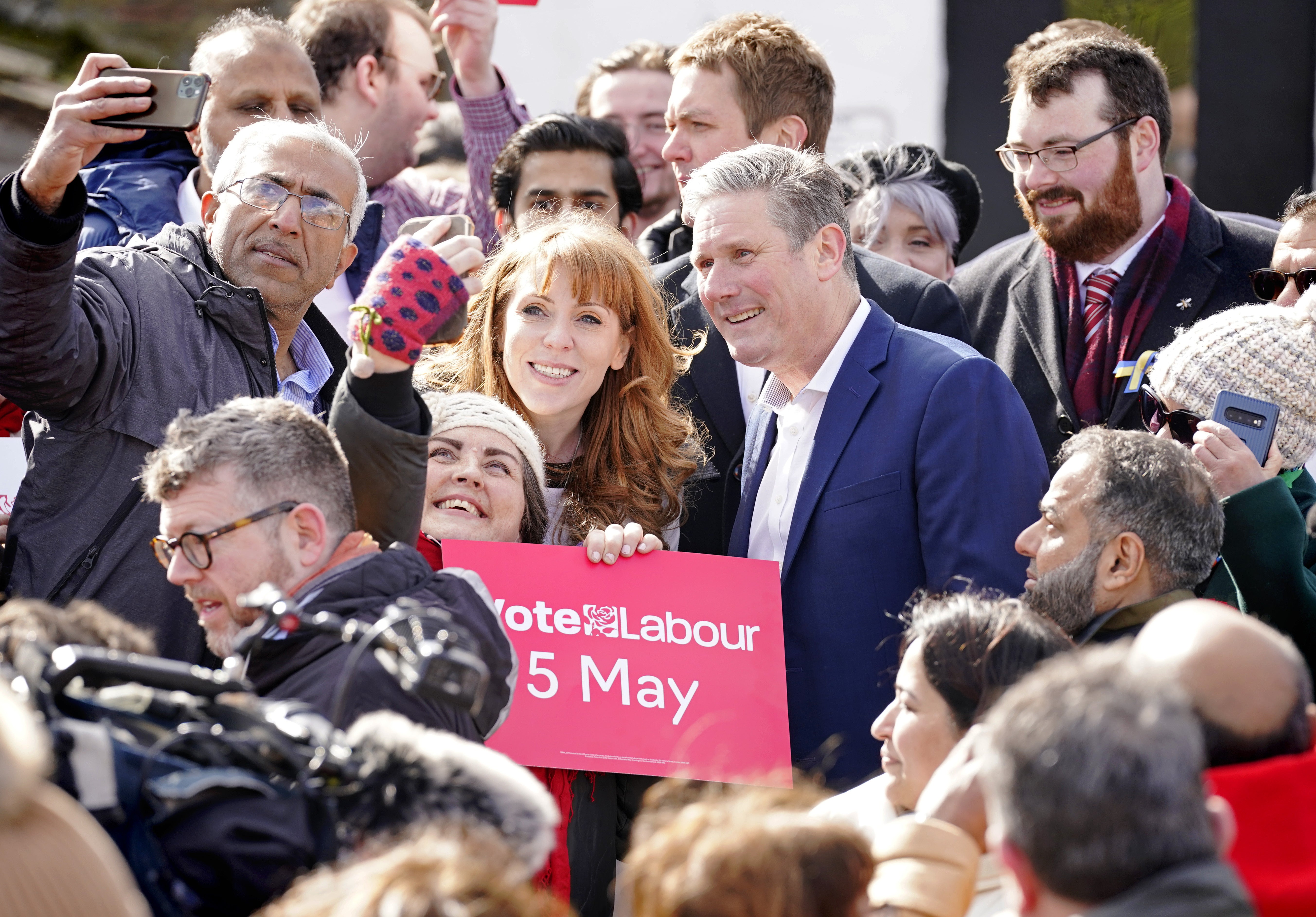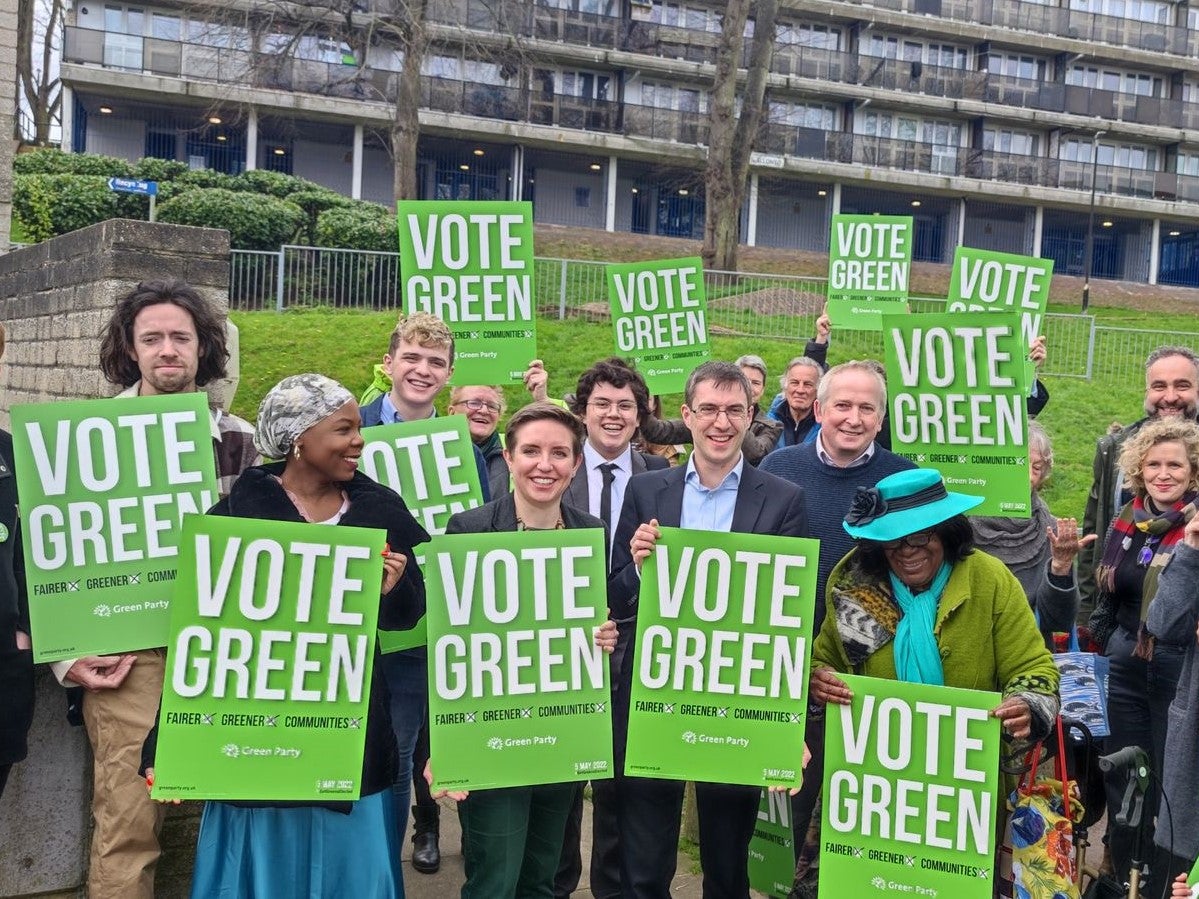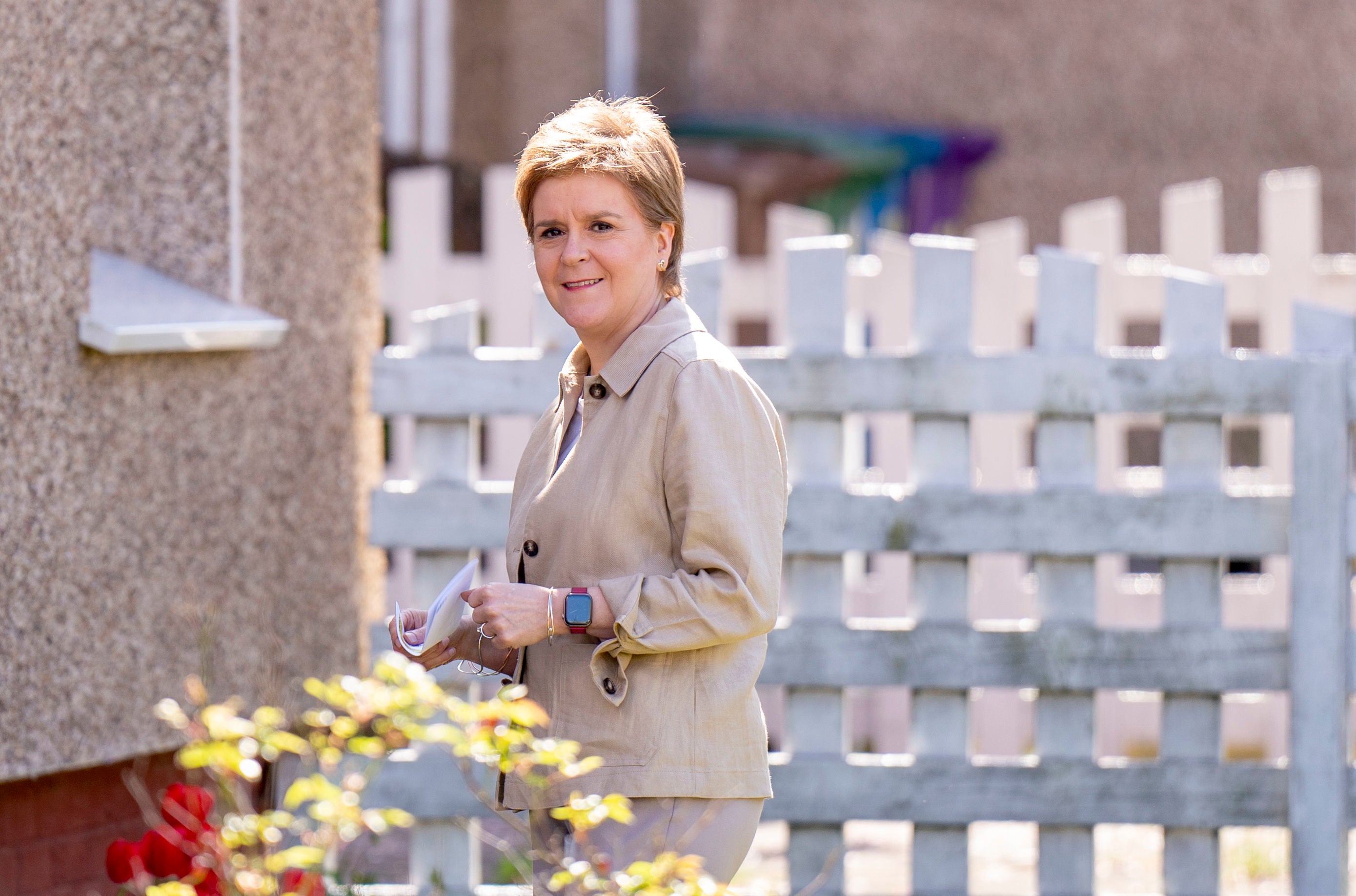Local elections 2022: Eight key battlegrounds – and what the results might tell us
Thursday’s voting is ostenciably about potholes and bin services but could these key council areas indicate the direction of a future general election – and the fate of Boris Johnson?
Your support helps us to tell the story
From reproductive rights to climate change to Big Tech, The Independent is on the ground when the story is developing. Whether it's investigating the financials of Elon Musk's pro-Trump PAC or producing our latest documentary, 'The A Word', which shines a light on the American women fighting for reproductive rights, we know how important it is to parse out the facts from the messaging.
At such a critical moment in US history, we need reporters on the ground. Your donation allows us to keep sending journalists to speak to both sides of the story.
The Independent is trusted by Americans across the entire political spectrum. And unlike many other quality news outlets, we choose not to lock Americans out of our reporting and analysis with paywalls. We believe quality journalism should be available to everyone, paid for by those who can afford it.
Your support makes all the difference.Local elections, depending on who you believe, are a vital signifier of the political mood of the nation that can make or break prime ministers, or they’re about potholes and litter.
As is the way of these things, the truth probably lies somewhere in the middle.
Much of the country goes to the polls on Thursday to elect choose directly elected mayors and thousands of councillors in some 200 different council areas.
And, in the aftermath, the results will be much picked over.
Will a poor Conservative showing indicate Boris Johnson has lost his electoral appeal following Partygate? Might a strong Labour surge suggest the red wall is coming round to Sir Keir Starmer? Could a growing Green vote hint that the party might one day have more than a solitary MP?

Or are commentators kidding themselves when they attempt to extrapolate national conclusions from a patchwork of polls where voters are oft concerned mainly with bin collections and street lighting?
These questions – and many more – will be assessed, debated and interrogated (though probably not satisfactorily agreed on) over the coming weeks.
And, of all the elections taking place, it may be these eight key battlegrounds that offer some of the most illuminating answers…
Derby City Council
Among Westminster-watchers, Derby has barely been mentioned but it may be in this East Midlands city that the outcome of a future general election could be foretold.
Historically Labour, though never overwhelmingly so, the 2018 elections here effectively preceded the fall of the red wall. That year voters in Derby elected more Tory councillors than Labour for the first time since 1990.
In the four years since the city has been one of England’s biggest urban centres run by the Conservatives, albeit as a minority administration.
Now, if Labour can wrestle control back – or at least make significant inroads – it may signal that voters in the Midlands are once again ready to give the party a go.
So, will it happen? Not according to Alan Graves, councillor and leader with the local Reform Derby party.
“Everything I hear tells me the Conservatives will get a small kicking because of Partygate but I emphasise the word small,” he says. “We had a Labour council in Derby for 25 years and I think the consensus is it didn’t do a great deal for the city. I’m not sure voters are ready to give them another try yet.”
Wandsworth Borough Council
Margaret Thatcher’s favourite council has been Conservative since 1978 and has done much over the last year to entice voters to keep it that way: council tax has been cut and rents frozen on council homes.
Yet despite that, Wandsworth is not only one of Labour’s key London targets, it has also been identified by polling expert Lord Robert Hayward as a borough that is likely to change hands.
After losing a rash of seats here in 2018, the Tories have a majority of just three and, because of the ward dynamics, experts suggest just a few hundred votes could swing it in either direction.
Within that context, the Labour Party says it is offering an ambitious slate of policies – covering housing, crime and education – that appear to be making the Conservatives jittery.
“It doesn’t matter if we make great gains or even win overall control of a few other areas [across the country],” one government minister told The Guardian. “If Wandsworth falls, that will be the narrative of the night.”

Bury Council
One of the few English unitary authorities outside of London where every councillor is up for election, Bury will also offer an indication of how Sir Keir’s central vow to rid his party of antisemetism is being viewed by voters.
That’s because the Greater Manchester town has England’s largest Jewish community outside of London. With Jeremy Corbyn as leader of Labour, both parliamentary constituencies and several council seats here were lost to the Conservatives.
“It was a painful time for a lot of people,” says Gareth Staples-Jones, an independent-turned-Labour councillor. “It was very raw. There are people here who had voted Labour all their lives and suddenly felt the person in charge was doing and saying things that were hurtful to their community.”
The party is now regaining that lost trust, he reckons, but it is not easy: “I’ve had people on the doorstep tell me they will never vote Labour again.”
The council itself is currently Labour but with a reduced majority of just five. If that can be increased once again, it will be hailed as evidence that Sir Keir is winning back old friends once more.
Cumberland Council
The biggest electoral shake-up since 1974 is taking place in Cumbria with two so-called “super unitary” authorities – Cumberland and Westmorland & Furnes– set to replace the current two-tier system of county and district councils.
Of those, Cumberland looks especially intriguing.
While the current county council is a Labour-Lib Dem coalition, the three districts are all Conservative, making Thursday’s contest a finely balanced affair.
“Every party is in it to win it,” says Mike Johnson, the Tory council leader of Allerdale District Council. “It could go down to the wire.”
Ongoing cuts to frontline services – adult social care and education in particular – have been the main gripe on the doorstep, locals say. Some voters blame the Conservative government for that. Others say the Labour county council has not spent its budget wisely.
The ongoing controversy over whether a new coal mine should be opened in Whitehaven is also dividing opinion. Local Tories want it. Labour does not.
Either way, independent councillor Paul Scott agrees it will be tight. “I think it will end a three-way tie,” he says. “Conservatives, Labour and others. Then it will be a scramble to form a coalition.”
If one party comes out with a bigger set of seats than expected, it could well indicate the prevailing mood of the vast region and how it might vote in a general election.
Sunderland City Council
However bad it would be for the Tories to lose Wandsworth Council, multiply that by a thousand if Labour succumbed in Sunderland.
This northeast city is about as red as red wall gets. The council here has never been anything other than Labour since it was established in 1974.
Yet the local Conservatives, under 30-year-old leader Dr Antony Mullen, genuinely fancy their chances of causing a historic shock.
The reds have haemorrhaged seats in the last two local elections and now have a majority of just five. If they lose those on 5 May, it may well allow the Tories – currently with an almost unprecedented 19 councillors – to form a coalition with the Lib Dems.
While Partygate has not made that aim easier, admits Mullen, he reckons that voters in the city are even angrier at a sense of being taken for granted by Labour councillors for too long. “They don’t just want a red block anymore,” he says.
Thursday, in short, could see fireworks.

Worcester City Council
It may not be the party that comes first or second that draws most interest in Worcester – but that which comes third.
While the Tories and Labour have traditionally vied for this district authority (the Conservatives currently have a majority of just one), it is the Greens that appear in the ascendancy.
The party’s policies of reducing congestion, tackling air pollution and preserving local green spaces have seen it grab four seats here in recent years, and insiders are confident of winning at least a couple more this time round.
“Those gains could tip the authority into no overall control with the Greens finding themselves as kingmakers,” said Chris Williams, head of elections with the party.
This would be no small deal.
With the party on course for a record 500 council seats across the country, entering ruling coalitions – even as junior members – is viewed as a way to burnish its credibility and showcase the progress it can make when in power. It is a virtuous circle, party bosses reckon: the more councils they run or jointly run, the more success they will enjoy in even more places.
Winning council seats in Worcester becomes, in effect, one step on the long journey to more MPs in Westminster.
Glasgow City Council
Such is the way of things with the single transferable vote system used in Scottish local elections, that councils here don’t tend to end up with one party in overall charge.
Of the country’s 32 authorities, just three have a majority – Orkney, Shetland and Comhairle nan Eilean Siar (Western Isles) – and all those are run by independent groups.
Yet in Glasgow, the SNP is seeking to defy such electoral constraints and take complete control of the city council for the first time ever.
The party currently runs a minority administration here with 35 of the 85 available seats. Grabbing a majority would be the sort of landmark breakthrough that creates its own momentum.
“We would have to be up at about 45 per cent to achieve that,” says Graham Campbell, an SNP councillor. “Our own polling says we’re up around that so it’s a case of let’s see what happens.”
A raft of eye-catching policies, including scrapping council tax for under-22s and an extension of free school meals, are said to be popular on the doorstep. But Labour’s own promises – capping bus prices and a £400 fuel cost payments for the poorest – have their own appeal during the current cost of living crisis.
Either way, the SNP already argues that last year’s parliamentary elections gave it a clear mandate for another independence referendum. Taking more council seats in the country’s biggest city would make such calls even harder to defy.

Worthing Borough Council
For 40 years up until a 2017 by-election, Labour did not hold a single seat on the Conservative-dominated Worthing Borough Council.
Five years on, the party goes into Thursday’s elections with the exact same number of councillors as the Tories: 17 each.
Which leaves one question: what happened?
Demographic change may be the biggest factor in the shift, it seems. People moving into Worthing from London and Brighton have changed the political make-up of the south coast town.
But, as with many councils that have been considered safe for decades, there is also a sense of being taken for granted here.
“You talk to people and they tell you they haven’t seen a Conservative for years until we started challenging them,” says Ferdousi Henna Chowdhury, a Labour councillor.
Now, she is confident her party will go one step further and take control of the council this week.
The closure of a number of family centres, a perception of rising anti-social behaviour and a feeling that parks have been allowed to fall into disrepair are all causing consternation here, she says.
And what would a Labour win mean for the national picture? “I think it shows that if you work hard, listen to people, engage with them and get things done, you can win anywhere,” says Chowdhury. “That’s what Labour should be doing everywhere.”

Join our commenting forum
Join thought-provoking conversations, follow other Independent readers and see their replies
Comments